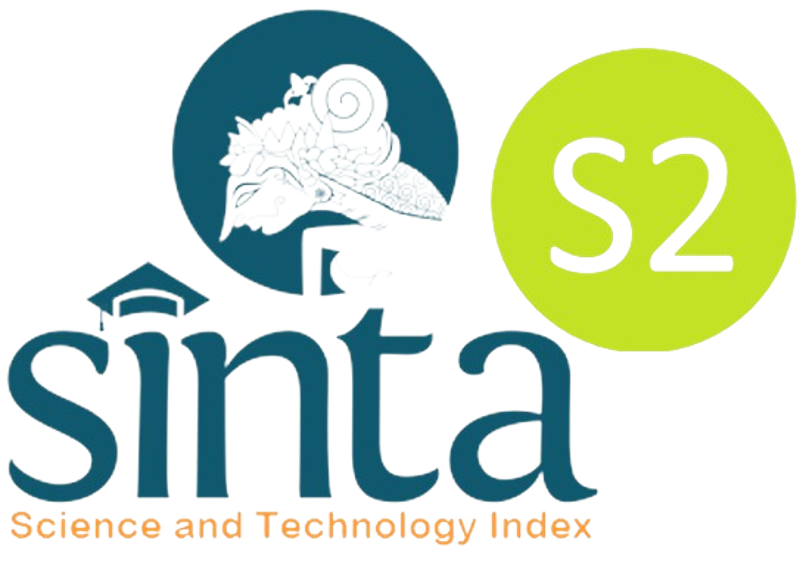Exploring Pre-Service Teachers Personal Preference and Implications for Teacher Education
Abstract
Abstract Exploring Pre-Service Teachers Personal Preference and Implications for Teacher Education. Objectives The purpose of this research is to describe and map the aspects of deference, order, succorance, change, and aggression of pre-service teachers. Method This descriptive-quantitative research was conducted in the Faculty of teacher Training and Education, University of Lampung. 247 student teachers were selected form 4 different study programs. Edward Personal Preference Schedule (EPPS) test was administered. Findings The findings suggest that the four different study programs employ different level of preference in relation to their preparation as a teacher. Conclusion These differences are believed to have impact on teacher education variance.
Keywords pre-service teacher, teacher education, personal preference.
Abstrak Dampak Preferensi Personal bagi Pendidikan Guru. Tujuan Tujuan dari penelitian ini adalah untuk mendeskripsikan dan memetakan aspek penghormatan, ketertiban, bantuan, perubahan, dan agresi calon guru. Metode Penelitian deskriptif-kuantitatif ini dilakukan di Fakultas Keguruan dan Ilmu Pendidikan Universitas Lampung. 247 mahasiswa dipilih dari 4 program studi yang berbeda. Tes Edward Personal Preference Schedule (EPPS) diberikan. Temuan Temuan menunjukkan bahwa keempat program studi yang berbeda menerapkan tingkat preferensi yang berbeda dalam kaitannya dengan persiapan mereka sebagai guru. Kesimpulan Perbedaan preferensi personal diyakini berdampak pada varians ketercapaian program pendidikan bagi calon guru.
Kata kunci calon guru, pendidikan guru, preferensi personal.
Full Text:
PDFReferences
Steverink, N., et al., The Associations of Different Social Needs with Psychological Strengths and Subjective Well-Being: An Empirical Investigation Based on Social Production Function Theory. Journal of Happiness Studies, 2019: p. 1-26.
Ryan, R.M. and E.L. Deci, Self-determination theory: Basic psychological needs in motivation, development, and wellness. 2017: Guilford Publications.
Murray, C., Losing ground: American social policy, 1950-1980. 2008: Basic books.
Rich, G.J., The positive psychology of youth and adolescence. Journal of Youth and Adolescence, 2003. 32(1): p. 1-3.
Edwards, A.L., Edwards personal preference schedule. 1959.
Santrock, J.W., Adolescencia. 2014: AMGH Editora.
Arnett, J.J., New horizons in research on emerging and young adulthood, in Early adulthood in a family context. 2012, Springer. p. 231-244.
Rahman, B., et al., Teacher-Based Scaffolding as a Teacher Professional Development Program in Indonesia. Australian Journal of Teacher Education, 2015. 40(11): p. n11.
Lee, H.-J., Developing a Professional Development Program Model Based on Teachers' Needs. Professional educator, 2005. 27: p. 39-49.
Levy, H.M., Meeting the needs of all students through differentiated instruction: Helping every child reach and exceed standards. The Clearing House: A Journal of Educational Strategies, Issues and Ideas, 2008. 81(4): p. 161-164.
Ainscow, M., Special Needs in the Classroom: A Teacher Education Guide. 1994.
Arnold, J., Affect in language learning. 1999: Ernst Klett Sprachen.
Baumeister, R.F. and T.F. Heatherton, Self-regulation failure: An overview. Psychological inquiry, 1996. 7(1): p. 1-15.
Davidson, D., Knowing one’s own mind. The American Philosophical Association Centennial Series, 2013: p. 389-409.
Bandura, A. and R.H. Walters, Social learning theory. Vol. 1. 1977: Prentice-hall Englewood Cliffs, NJ.
Evans, D.R., I.A. Boggero, and S.C. Segerstrom, The nature of self-regulatory fatigue and “ego depletion” lessons from physical fatigue. Personality and Social Psychology Review, 2016. 20(4): p. 291-310.
Chalder, T., et al., Development of a fatigue scale. Journal of psychosomatic research, 1993. 37(2): p. 147-153.
Bogdan, R. and S.K. Biklen, Qualitative research for education. 1997: Allyn & Bacon Boston, MA.
Taylor, S.J. and R. Bogdan, Introduction to qualitative research methods: The search for meanings. 1984: Wiley-Interscience.
Refbacks
- There are currently no refbacks.
Copyright (c) 2020 Jurnal Pendidikan Progresif

This work is licensed under a Creative Commons Attribution-ShareAlike 4.0 International License.
View My Stats

The copyright is reserved to The Jurnal Pendidikan Progresif that is licensed under a Creative Commons Attribution-ShareAlike 4.0 International License.






